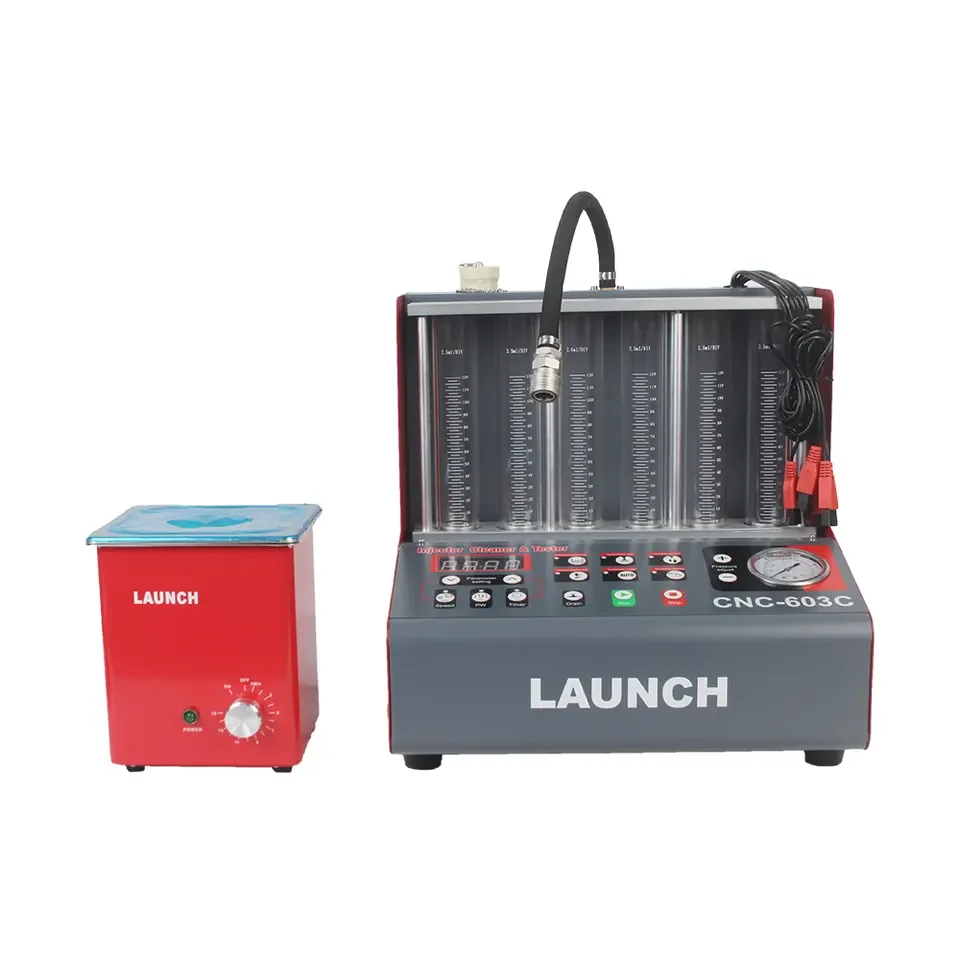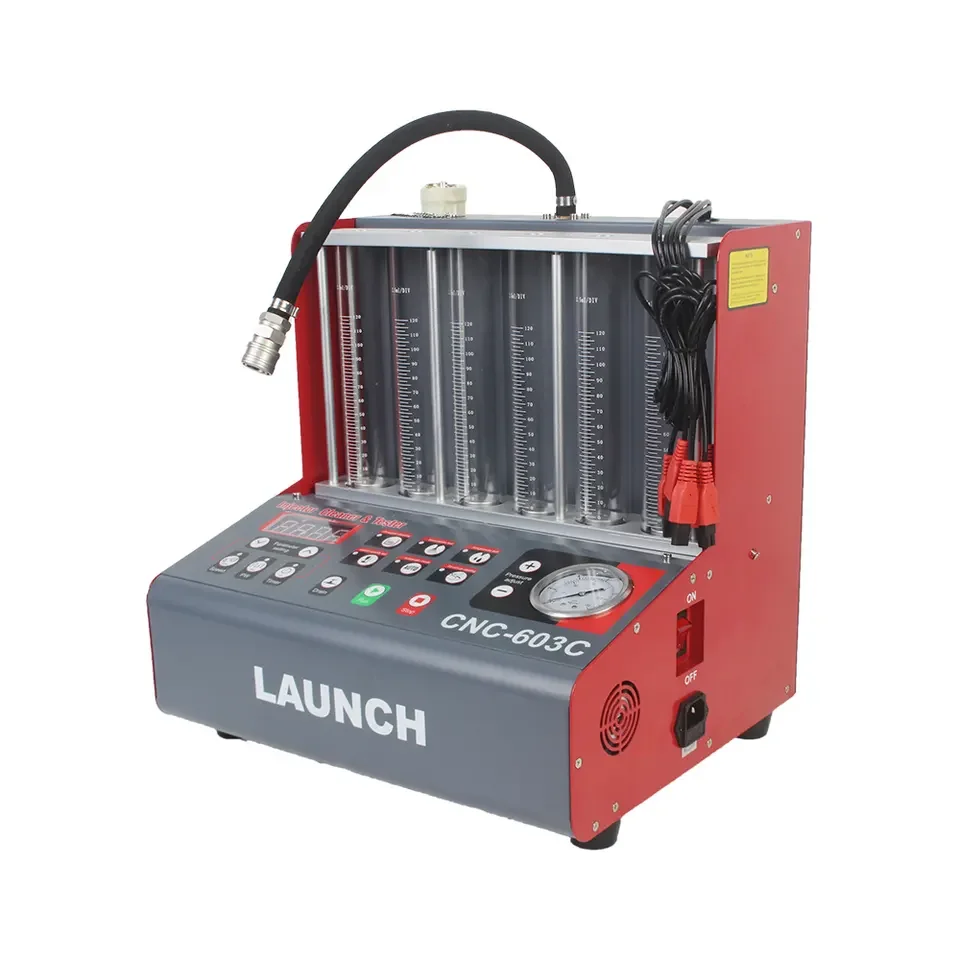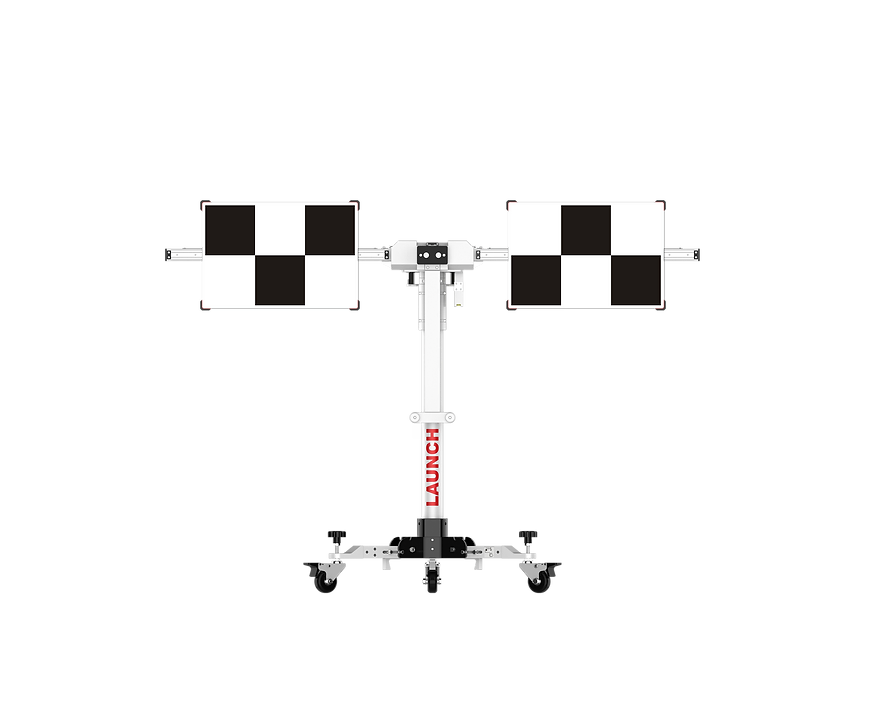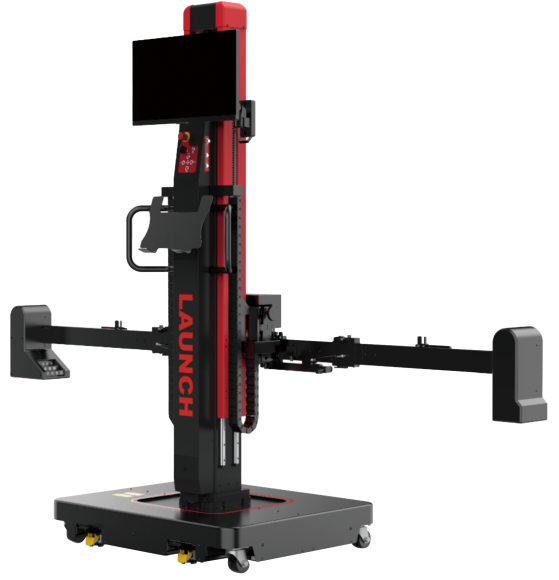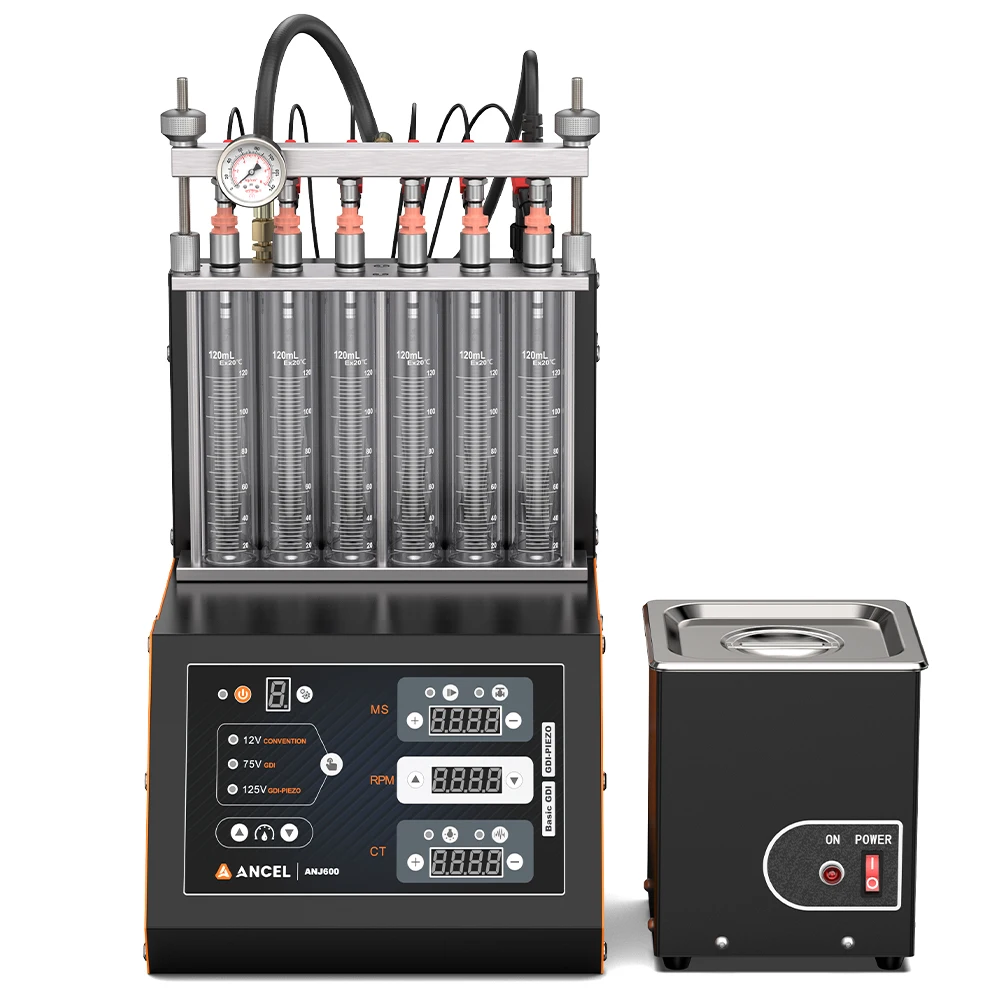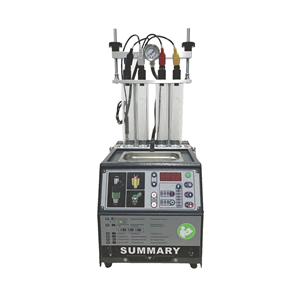- WhatsApp:+86-19892834301
- Email: automantool@hotmail.com
- Skype:autoobdtop
New Launch CNC-603C CNC603C Ultrasonic Fuel Injector Tester & Cleaner 6 Cylinders English Panel For Gasonline Car
Item No. IC005
In Stock.
History sold.
0 out of 50 global ratings
- 5 stars:0%
- 4 stars:0%
- 3 stars:0%
- 2 stars:0%
- 1 stars:0%
ratings| answered questions
0 out of 5
0 global ratings
- 5 stars:0%
- 4 stars:0%
- 3 stars:0%
- 2 stars:0%
- 1 stars:0%
Latest price:$539.00
Buy Now:
$
499.00
7% off
Fast Shipping & No Tax
US Check: Ship from US
UK Check: Ship from UK
EU Check: Ship from Czech
Looking for help? Please contact Whatsapp: +86-19892834301
- Shipping:
-
Free Shipping
Express Shipping ServiceEstimated delivery time: 3-5 Working Days
- Quantity:
- Stock:100
- Weight:
- 25 KG
- Package:
Related Download Files
Share
New Launch CNC-603C CNC603C Ultrasonic Fuel Injector Tester & Cleaner 6 Cylinders English Panel For Gasonline Car
1. Functions and Features
Main Functions
* Uniformity / Sprayability test: to detect the uniformity of the fuel injection quantity of each injector and monitor the spray status of injectors thoroughly and carefully by using the backlight, and to backflush injectors.
* Leakage test: to test the leakage and dribbling conditions of injectors under system pressure.
* Injecting flow test:to detect the amount of fuel injected normally by injectors in 15 seconds.
* Auto. test: under specific working conditions and parameters, the precise simulation of test of injectors under various working conditions
* Ultrasonic cleaning: to perform ultrasonic cleaning on multiple injectors at the same time, removing carbon deposits on injectors completely.
* On-Vehicle Cleaning: Coming with a variety of disassembly-free cleaning connectors, the device can be used to perform on-vehicle cleaning and maintenance for various vehicle models.
* Version information: to check the software version information of the current device.
Main Features
* Adopting ultrasonic cleaning technology, CNC-603A Injector Cleaner & Tester presents a strong cleaning ability;
* The product also adopts fuel pressure adjustment and control technology by microcomputer, which can ensure stable fuel pressure and wide adjustable range. It is applicable to vehicles equipped with a variety of gasoline injection systems. Meanwhile, the automation of injectors' cleaning and testing processes can be realized.
* Thanks to the adoption of microcomputer automatic control and digital display technologies, the cleaning and testing processes can be controlled automatically and the parameters of the main status can be monitored in real time.
* Automatic fuel drain during a certain test can be realized via a routine, owing to the adoption of automatic fuel drain control technology. Start or [stop] fuel drainage via the [Drain] button on the control panel in running or stop state
1.Cleaning and Testing Sequences
It is recommended to carry out the complete cleaning and testing procedures in the following order.
* Ultrasonic cleaning;
* Uniformity / Sprayability test;
* Leakage test;
* Injecting flow test;
* Auto. test. Select the corresponding parameter according to different test items and set it. See "V. Operation Processes" for details.
2. Cleanup after Operation
After the end of cleaning and testing, a cleanup should be done, which includes:
* Press [Drain] button on the control panel to drain test solution to a fuel container.
* Switch off the power switch and unplug the power plug.
* Take out the ultrasonic cleaning pool and pouring out all cleaning fluid completely shown in Figure 4.2, and wipe the ultrasonic cleaning unit with a soft dry cloth.
* Wipe the table top of the machine with a soft dry cloth.
* To avoid volatilization, all the test solution in the fuel tank should be discharged. If it can be used again, store it in a safe place. If it is dirty and cannot be used any more, dispose it according to relevant regulations.
3. Specifications: Working Environment:
Power: AC110V-127V,50Hz/60Hz 3Amax
AC220V-230V,50Hz/60Hz 1.5Amax
Mechanical Power: 300W
Ultrasonic Cleaning Power: 100W
Speed Range for Simulation Test: 10~9990rpm
(step: 10rpm)
Environment Temperature: 0℃~+45℃
Relative Humidity: <85%
Strength of External Magnetic Field: <400A/m
Open fires is strictly prohibited within 2m.
Timing Range: 1~9999s
Pulse Width Range: 0.5~25ms (step: 0.1ms)
Operating Volume: 3000ml
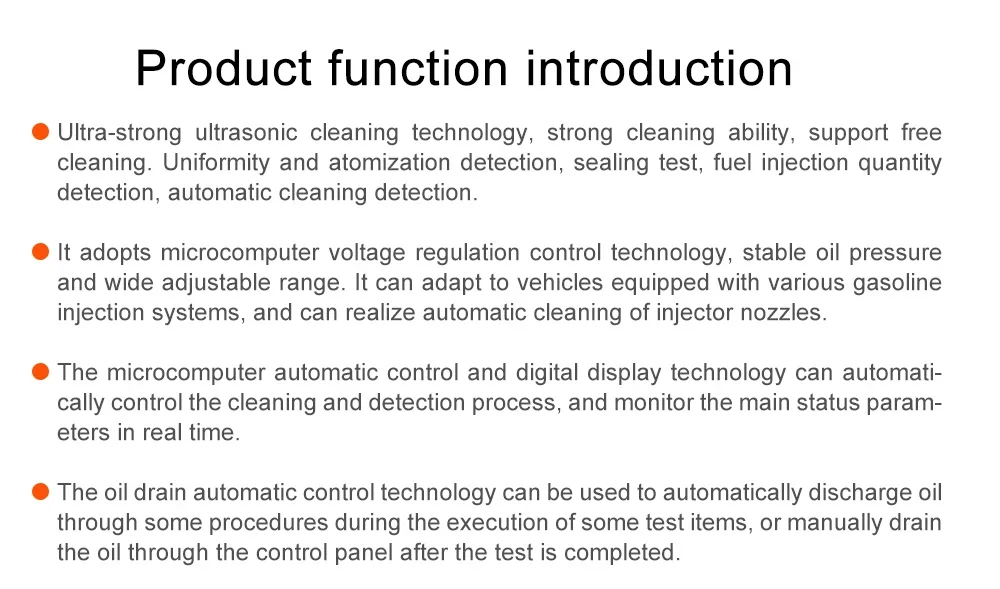
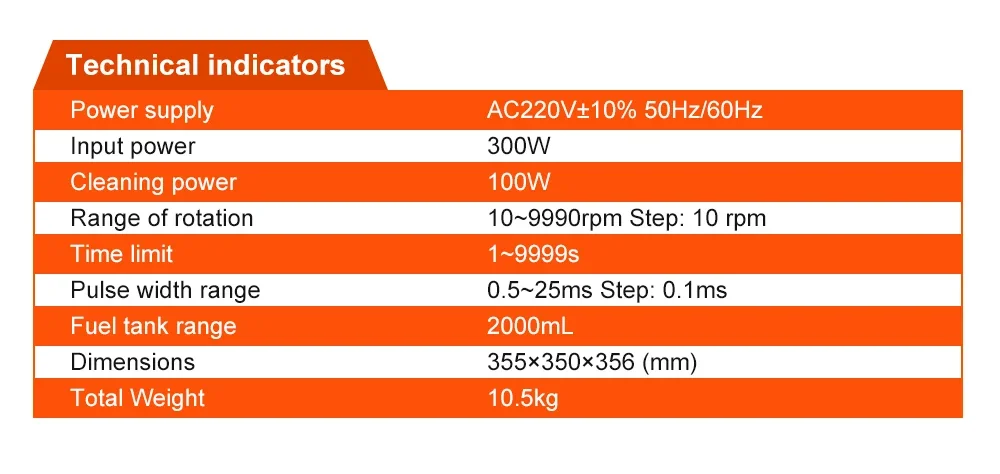
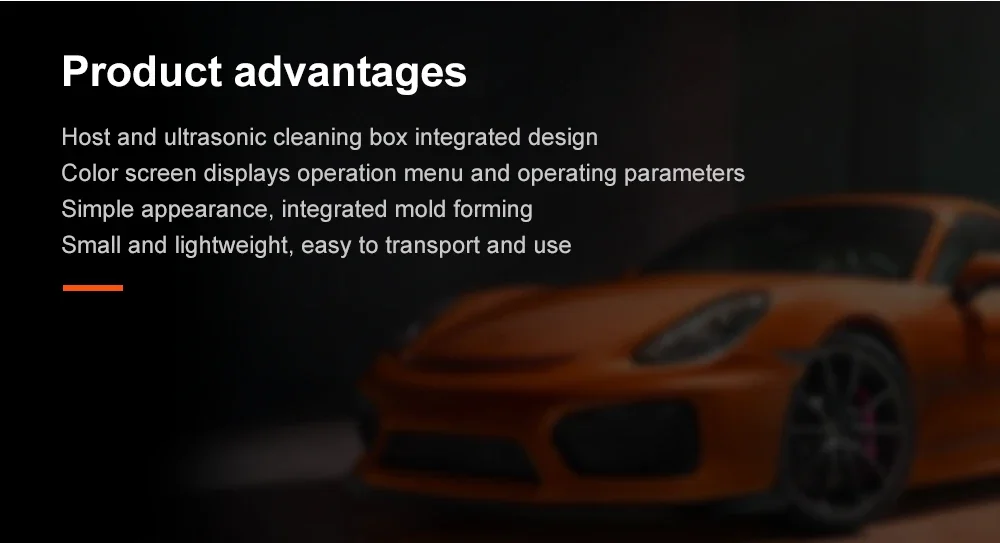
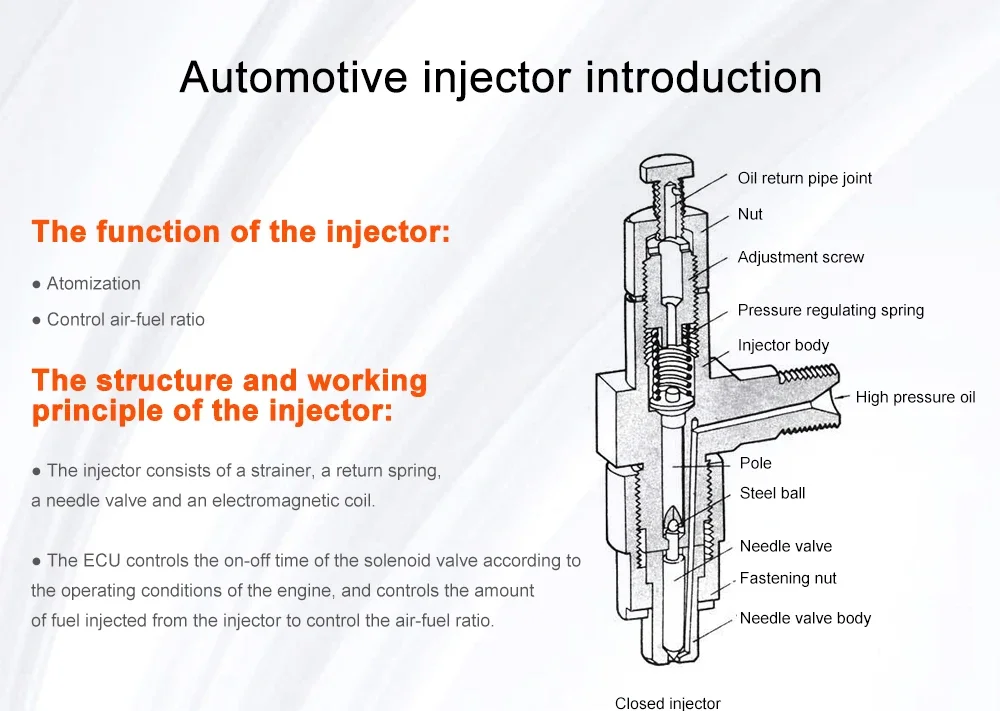
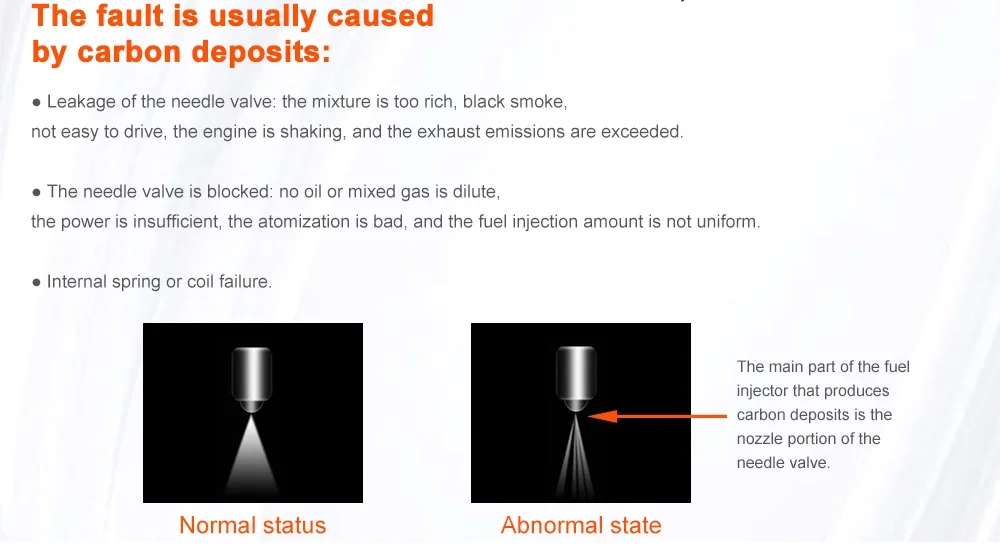
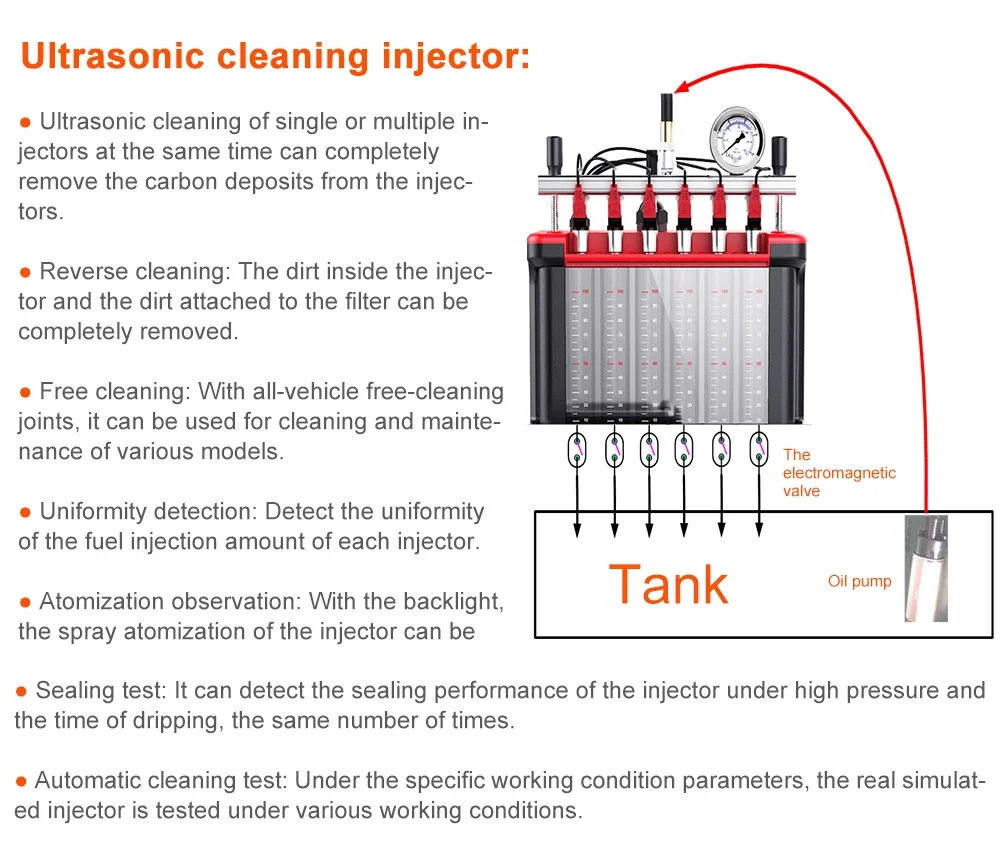
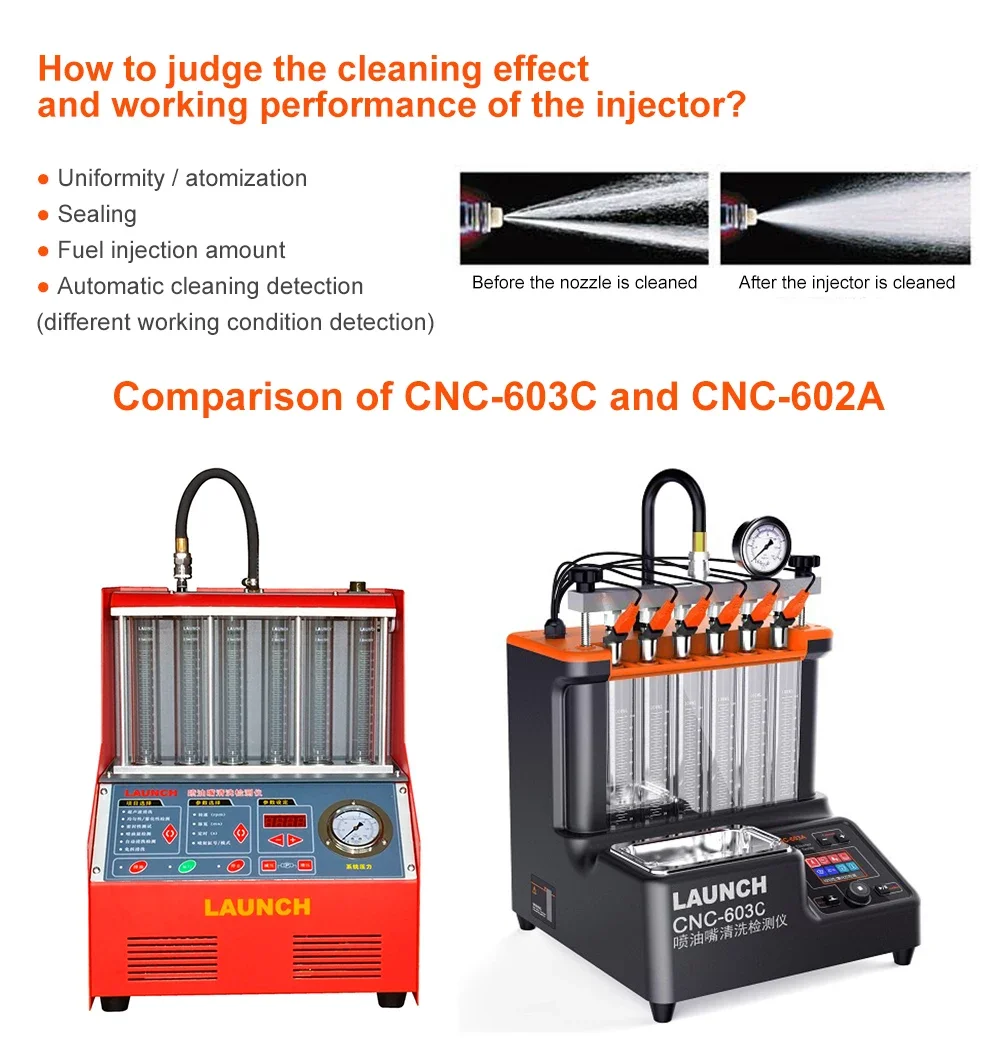
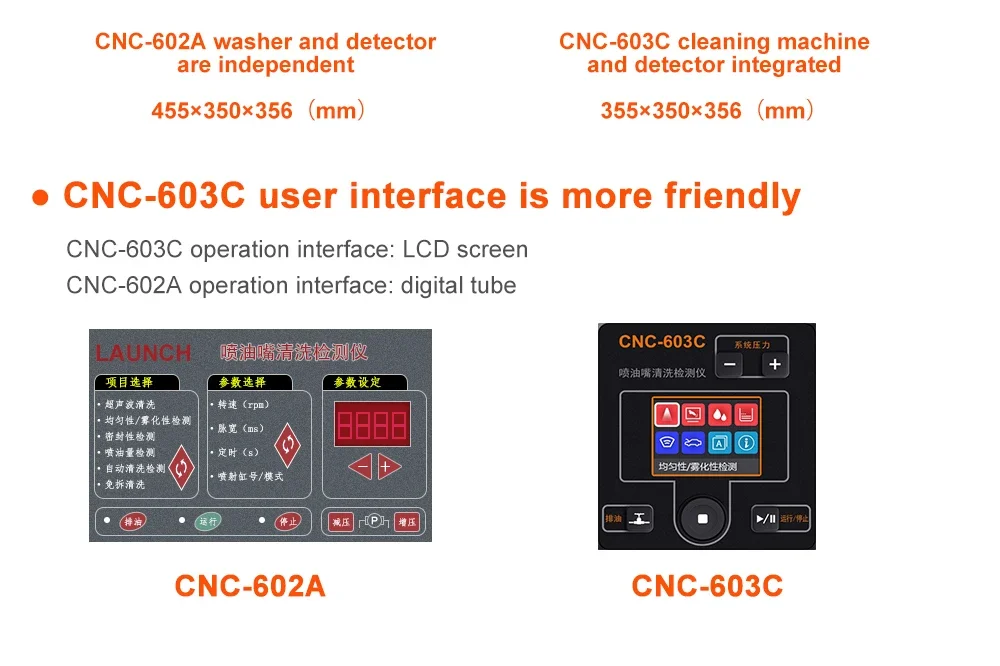
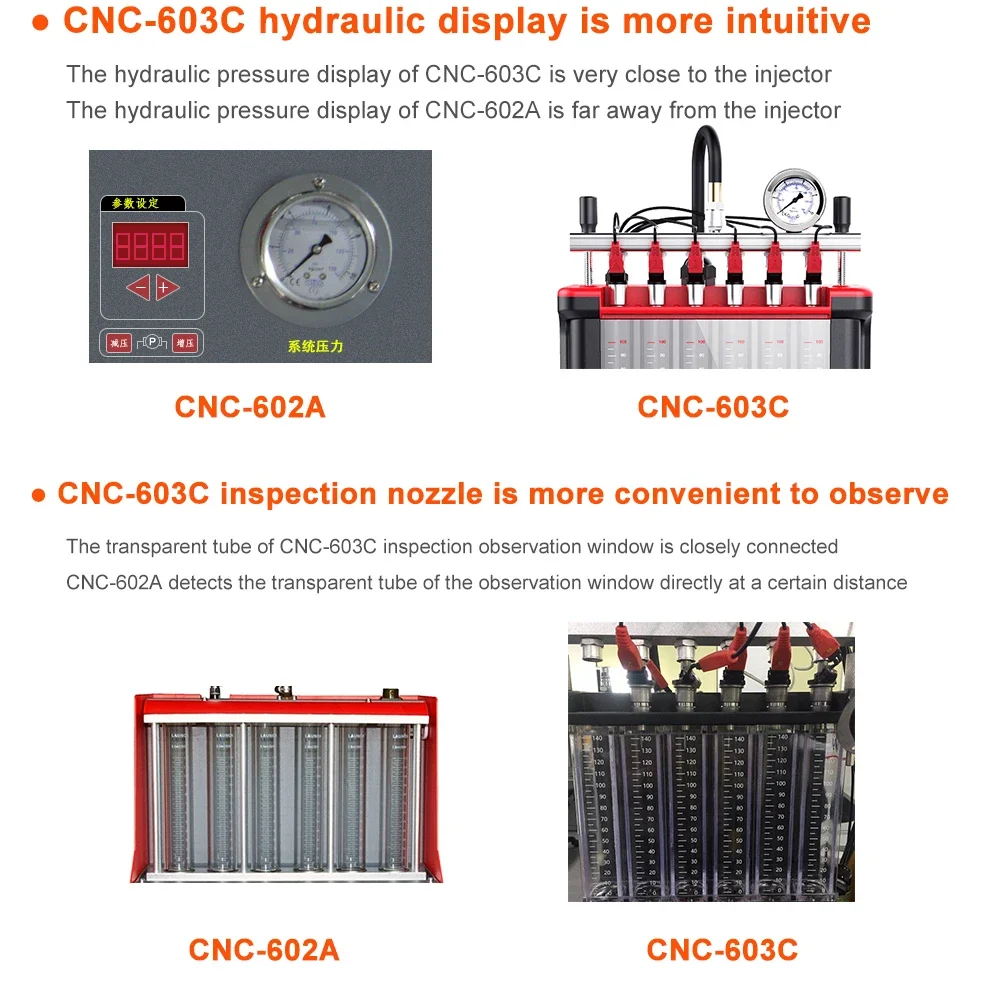
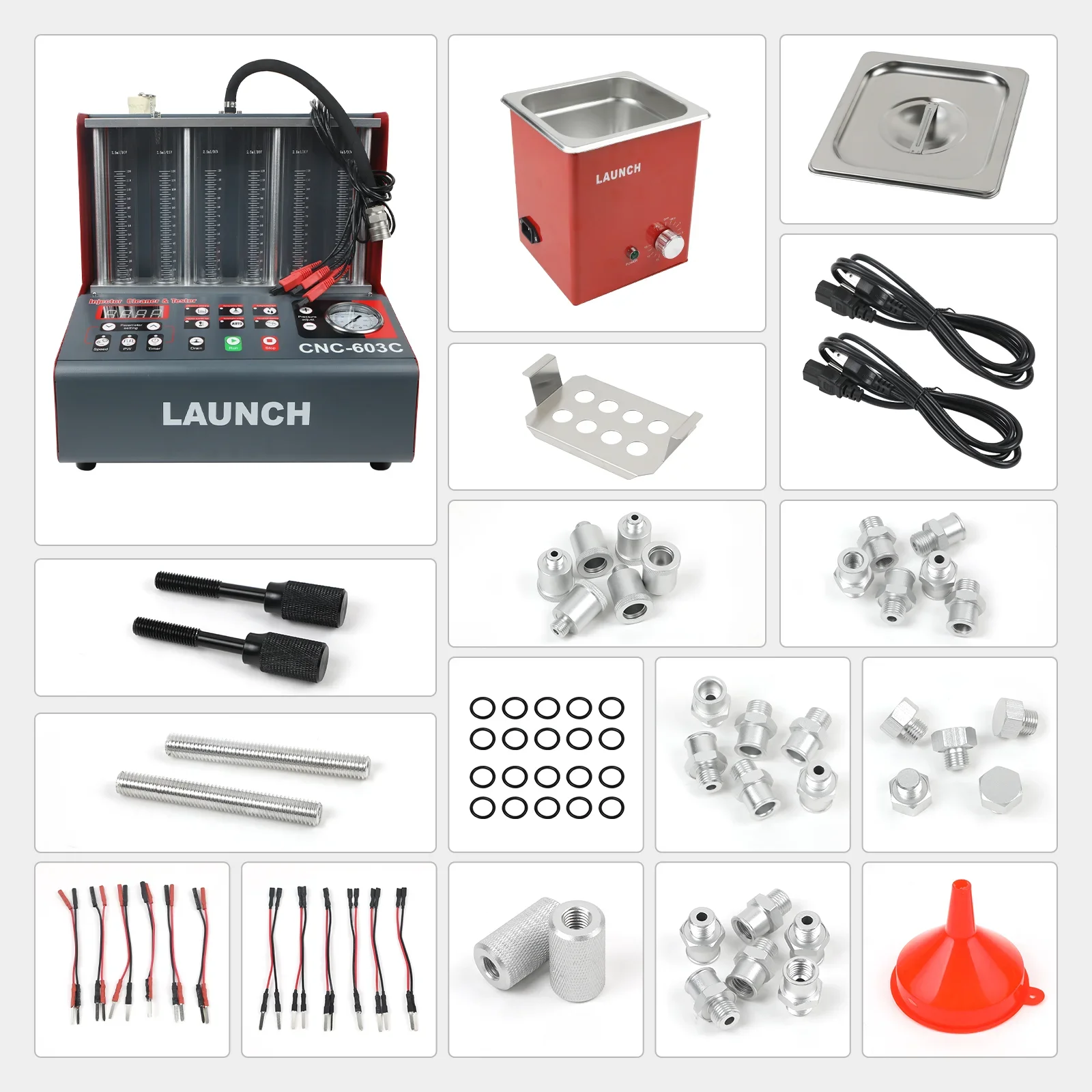
Customer Questions & Answers
Customer Reviews
0 Stars of 5,0 Reviews.
- 5 stars:0%
- 4 stars:0%
- 3 stars:0%
- 2 stars:0%
- 1 stars:0%
Share your thoughts with other customers.
Write a reviewTop customer reviews
You may also like
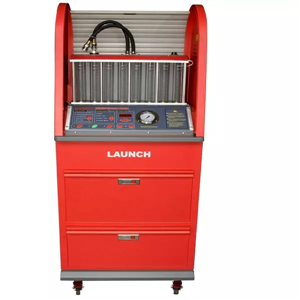
-
Launch CNC601A Automotive fuel injector tester&cleaner 220V/110V with English panel CNC-602A for 6 or 4 cylinders Gasonline car
$879.002% off
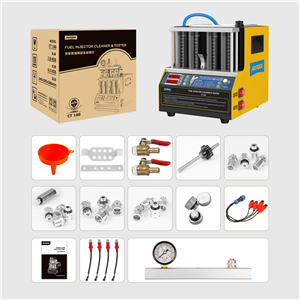
-
AUTOOL CT160 220V/110V 4-Cylinders Car Fuel Injector Flushing Nozzles Fuel Injector Tester Ultrasound Heating Cleaning Injectors Motorcycle
$299.006% off
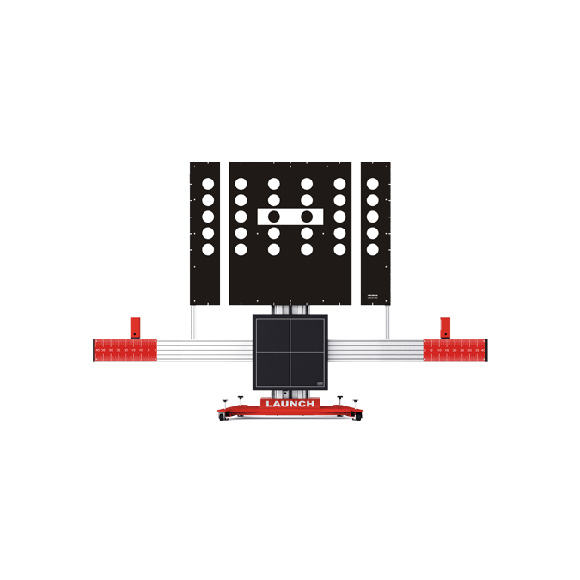
-
X-431 ADAS PRO Calibration Tool
$4939.001% off
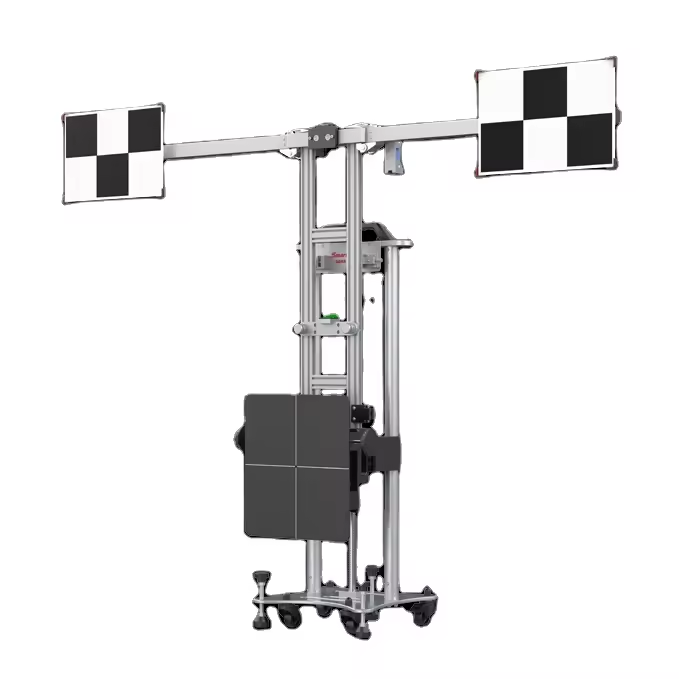
-
SmartSafe X-431 X431 ADAS LITE ADAS Calibration Machine
$1999.005% off
-
Tel
+86-19892834301 -
WhatsApp


